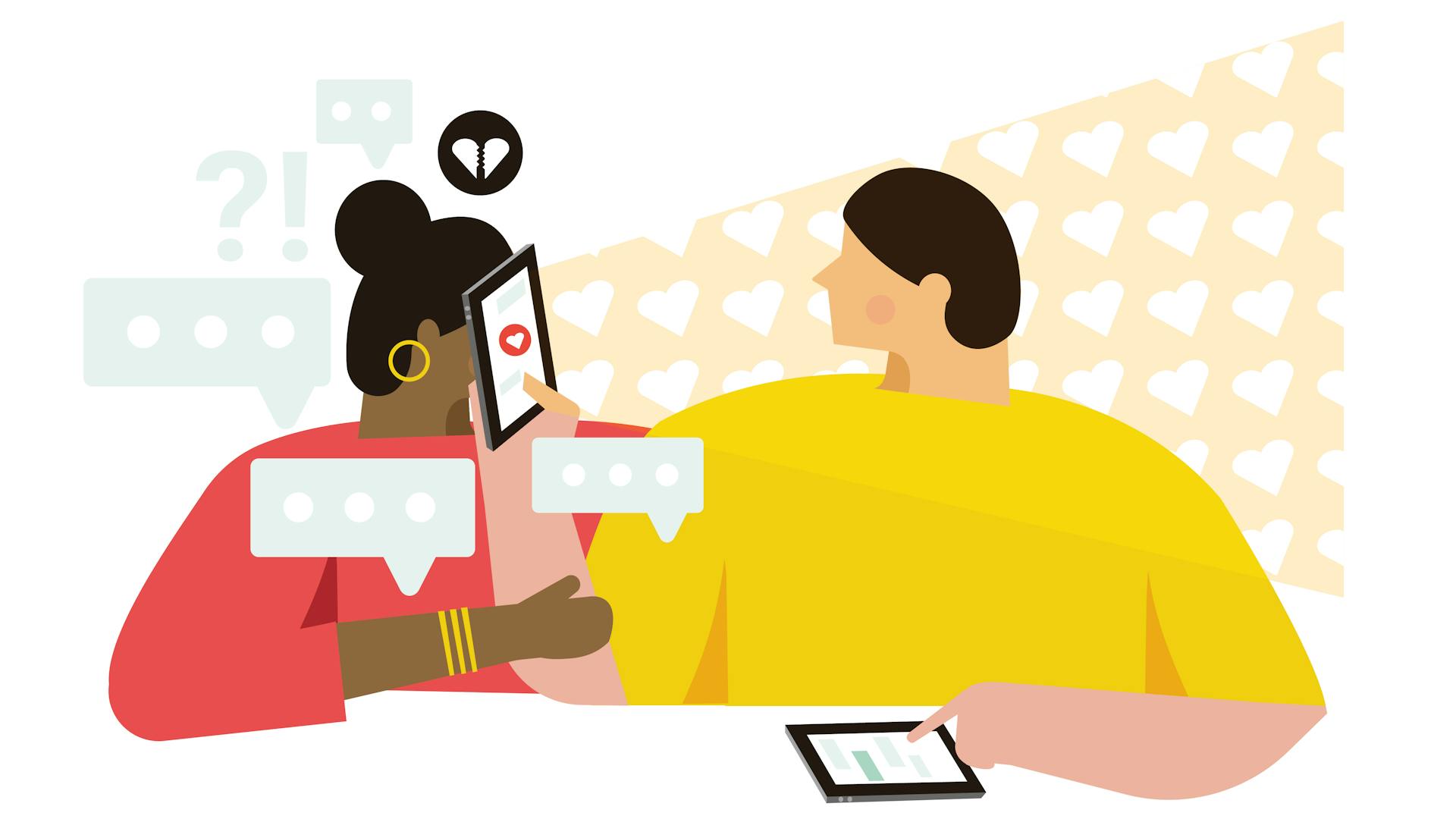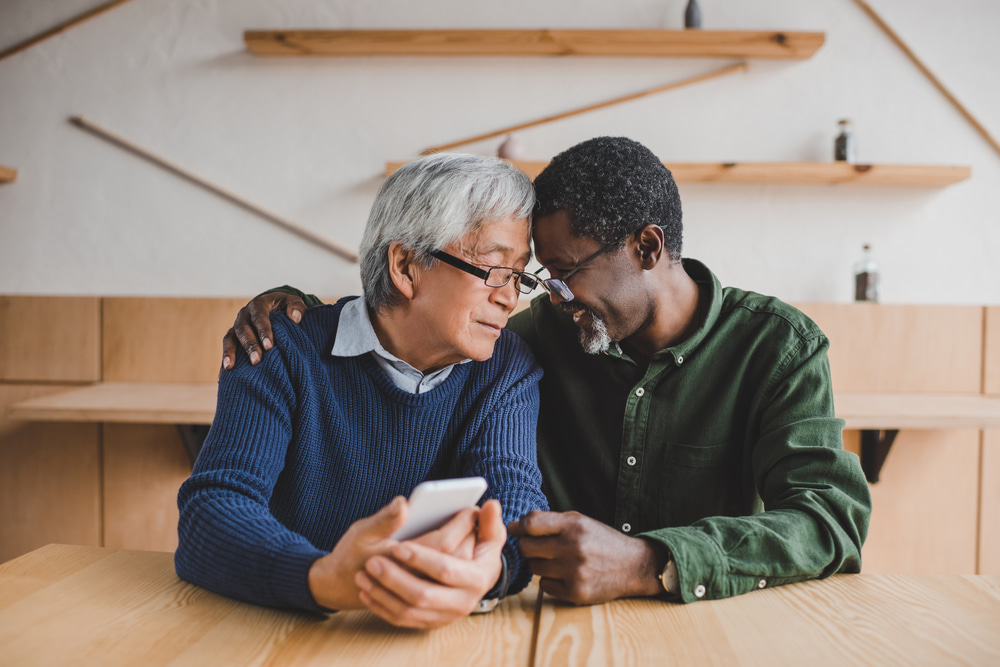
Smartphones can add so much to our lives and relationships; we have the ability to keep in touch with our loved ones 24/7, or reconnect with friends across the globe with the touch of a few buttons. But, while our digital relationships can flourish, could technology also be contributing to a breakdown in the connection between real-life couples? If you find yourself feeling like the second most important thing in your relationship – after your partner’s phone – the answer could be yes...
You’ve certainly had it done to you, and you’ve (more than likely) done it to someone else. Snubbing the person in front of you by being engrossed in your phone – also known as “phubbing” – is a frustrating, and increasingly common, part of our modern world. But, more than just a mere annoyance, according to relationship experts it actually has the potential to spell trouble for your love life.
Our phones can prevent us from being present in the moment and, often, what we’re doing is sadly ironic. When submerged in our phones, we’re usually connecting with another person on the other end of the screen. But, what we’re very rarely thinking about is how our actions can severely disrupt our in-person relationships – which, usually, tend to be our most important ones.
In fact, while the top 10 reasons for couples to argue used to include sex, money, household chores and children, it seems that things are changing, with smartphones rapidly rising up that list. Research has revealed that higher levels of phubbing are often associated with greater relationship conflict, according to a study from Brigham Young University, Utah. Not only that but, in relationships where phubbing is a regular occurrence, there is also lower relationship satisfaction.
If your conversation or evening meal is disrupted because your partner chooses to check their phone – let alone send a text message, email, or post something on social media – it sends a strong message. It can feel like they’re saying: “What I’m doing on my phone is more important than you,” or, “I’m more interested in my phone than in you.”
Basically, phubbing has us really phubbed-off.
Rejections, no matter how small, can be extremely painful. This is because the brain responds in the same way as it does to physical pain – there’s no differentiation. So, even less obvious rejections, such as a partner reaching for their phone in the middle of a conversation, can result in us feeling really hurt and emotionally disconnected from them. But, it might not be as simple as you think; there may be underlying causes for your partner’s behaviour. And it could actually be you who has disconnected emotionally from them.

Relationship coach Judy James, a practitioner of emotionally focused therapy (EFT) for couples, explains: “Your partner’s interaction with their phone could be a distraction from the pain of longing for loving affection. They may feel criticised and shut out of the relationship. Maybe the relationship no longer feels emotionally safe, and they are subconsciously seeking acceptance in a world outside of your relationship.”
While the cause isn’t always clear, one thing that is certain is that phubbing can be damaging, not only to your relationship but to your emotional health as well. It can cause us to feel neglected. You might experience a drop in mood or self-esteem, or even feelings of anger and resentment. And, over time, these feelings add up.
“If the relationship is even just a tad insecure, anything less than complete openness and transparency could give rise to suspicion. The sense of disconnection may trigger anxiety and fear that the relationship is in peril, and cause the anxious partner to question: ‘Do I even matter to you?’” Judy explains.

It’s not healthy to foster feelings like these regularly, let alone towards your partner. It doesn’t have to be this way, though, and it’s actually easier than you’d think to avoid these conflicts. It’s all about creating boundaries and being honest with one another.
The best way to have the conversation is to approach it in the same way as you would for any other factor in your relationship. Judy says: “Express your feelings and needs with compassionate curiosity. For example: ‘When I see you on your phone so much I worry that you’re preoccupied with work [or someone/something else]. I care about you and our relationship so much, but I feel isolated.’”
Make an effort to be more “present” when you are together. Try creating technology-free zones; leave your phones out of sight when you’re having dinner, allowing yourselves that time to sit and eat together, reflecting on how your day was. Or perhaps, make your bedroom a no-phone zone. This could help you “reconnect” as a couple – and even get a better night’s sleep, too.

